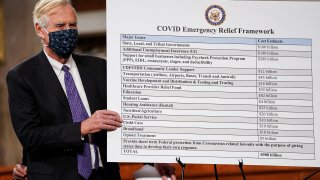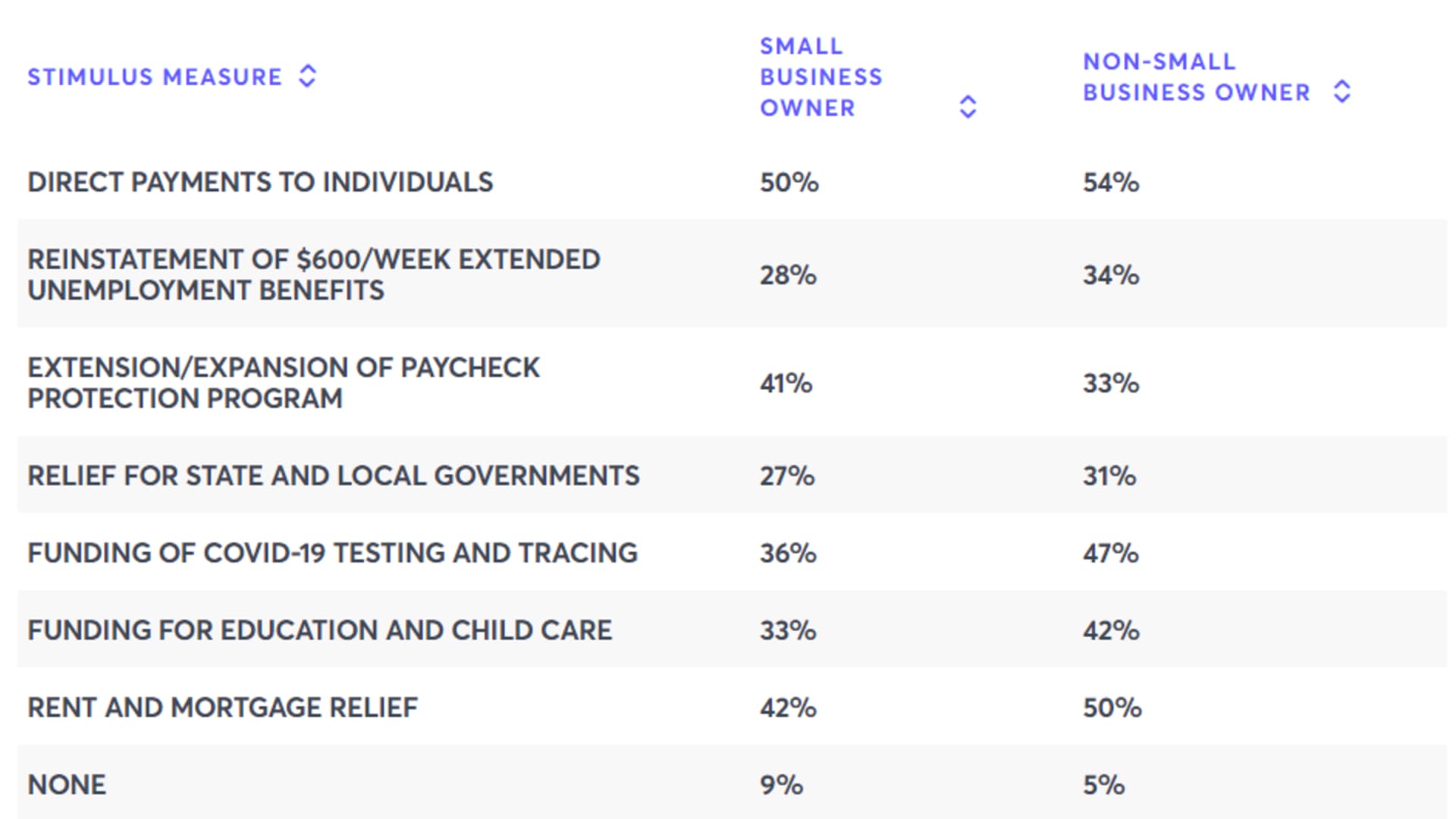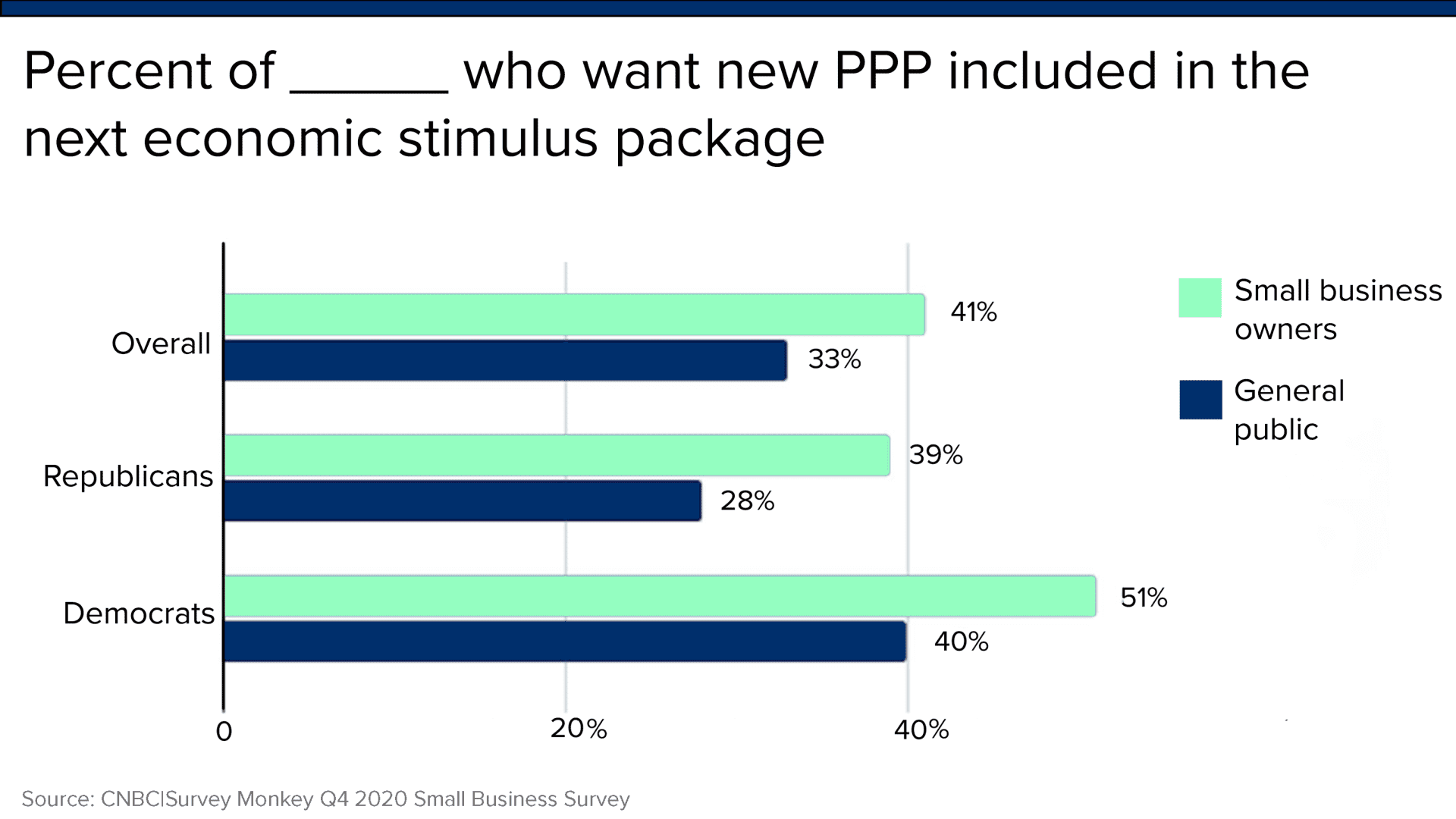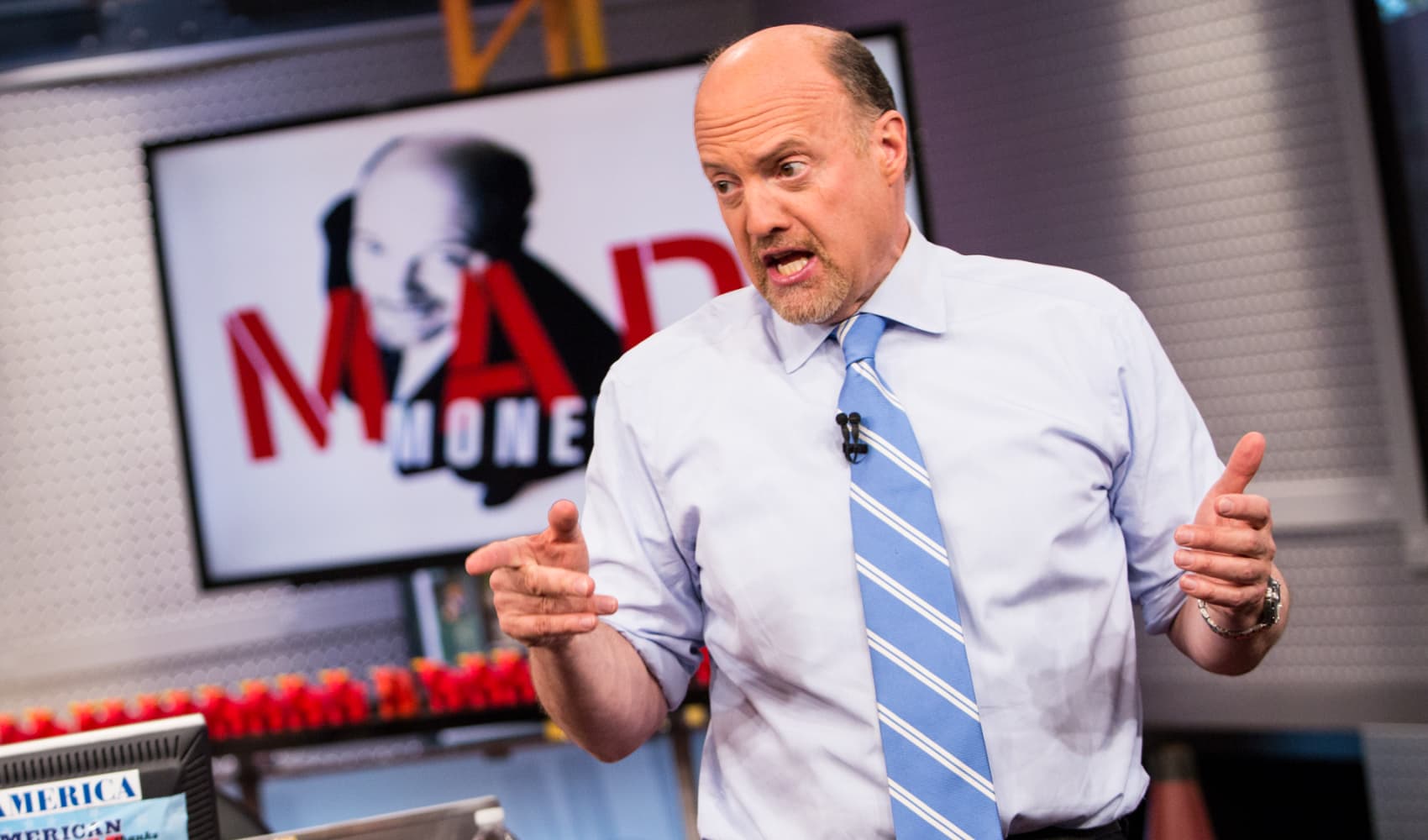
- After months of stalled talks between Capitol Hill and the White House and as coronavirus cases reach daily new highs, Congress unveiled a new pandemic stimulus proposal including $288 billion in small business aid, including the Paycheck Protection Program.
- 83% of small business owners in the latest CNBC|SurveyMonkey Small Business Confidence Survey saying they would support a new stimulus package.
Main Street has been clamoring for a new round of federal relief, with 83% of small business owners in the latest CNBC|SurveyMonkey Small Business Confidence Survey saying they would support a new economic stimulus package to help individuals and businesses impacted by the coronavirus pandemic. On Tuesday, after months of stalled talks between Capitol Hill and the White House and as coronavirus cases reach daily new highs, Congress unveiled a new stimulus proposal that seems tailored to meet the dire needs of small businesses across the country, though it was quickly shot down by Senate Majority Leader Mitch McConnell.
In what would be a boon for small business owners, a key aspect of the new proposal is the allotment of $288 billion in small business aid and to renew this summer's Paycheck Protection Program (PPP), which the survey results indicate is the leading hope for small business owners struggling to keep the lights on even if their doors are still closed due to the virus. Four in 10 small business owners (41%) support an extension or expansion of the PPP, making this proposal the only one that receives more support among small business owners than among the general public.
The pandemic and the Paycheck Protection Program
The PPP provided funds to businesses that could prove they maintained their payrolls despite business closures and general drop in demand earlier this year. Hiring and retaining workers is always a challenge for small business owners, but it has been especially so in the pandemic.
In the latest update of the quarterly tracking survey, conducted Nov. 10-17 among more than 2,000 small business owners nationwide, about 1 in 5 (19%) say they've had to furlough or lay off some or all employees as a result of the coronavirus. Of those who have furloughed or laid off staff members, a majority (58%) have already hired some or all of their workers back, 23% haven't yet but expect to hire all or some of their workers back, and 19% expect those departures to be permanent.
Those layoffs have been particularly concentrated by industry, with, for example, 33% of small business owners in the accommodation and food services industry but just 10% of those in the real estate industry saying they've had to resort to layoffs and furloughs to deal with coronavirus-related business setbacks this year.
Money Report
Early in the pandemic, policymakers realized the inherent tradeoff between public health and business survival: by encouraging or mandating that businesses shut down and people stay home as much as possible to avoid spreading the novel coronavirus, they would doom many of those businesses to close entirely, or at least to be forced into taking drastic measures in order to stay alive, which would likely include layoffs.
Whether they turn out to be temporary or long-lasting, the job losses reported by small business owners are exactly the problem the PPP was meant to solve.
Paying businesses to keep paying their workers, even when they weren't working and even when no revenue was coming in, was a simple yet elegant fix for a potential unemployment catastrophe. At the individual level, no worker wants to be laid off, and no small business owner wants to cut headcount; at the macro level, policymakers knew that minimizing or outright avoiding a recession would require a coordinated effort.

Support for another round of PPP is even higher among those small business owners who've had to let workers go as a result of the coronavirus. More than half of small business owners (55%) who've resorted to furloughs or layoffs in recent months say they want to see an extension or expansion of the PPP included in a new stimulus package, compared with 33% among those small business owners who haven't made business adjustments due to the coronavirus.
Among the general public, support for a new stimulus package is similarly high: 89% of non-small business owners nationwide support a new economic stimulus. The most popular proposal is the simplest: direct payments to individuals, which gets the support of half of small business owners (50%) and a majority of people in the general public (54%). The package announced on Tuesday does not contain funding for this particular proposal.
Despite the overwhelming support among the public and from small businesses, stimulus talks had stalled in Congress since the late summer, with partisanship largely to blame.
Though they still overwhelmingly support a new economic stimulus package, Republicans are somewhat less enthusiastic about it compared with Democrats. Among the general public, 84% of Republicans and 96% of Democrats say they support the passage of a new federal stimulus. Among small business owners, 76% of Republicans and 96% of Democrats support such a proposal.

But when asked specifically about the prospect of a renewed PPP, Republican small business owners, much like Democratic small business owners, were more enthusiastic than their non-small business-owning partisan counterparts. Just over half (51%) of Democrats who own small businesses support a renewed PPP, greater than the 40% share among Democrats in the general public; similarly, 39% of Republicans who own small businesses support a renewed PPP, greater than the 28% share among Republicans in the general public.
Just 23% of small business owners expect their headcount to increase in the next 12 months, down from 32% a year ago and in the first quarter of this year. Support for a revived PPP among small business owners indicates they expect it to provide the economic boost needed to get back to where they were pre-pandemic.
The CNBC|SurveyMonkey Small Business Survey for Q4 2020 was conducted across more than 2,200 small business owners Nov. 10-Nov. 17. The survey is conducted quarterly using SurveyMonkey's online platform and based on its survey methodology.






